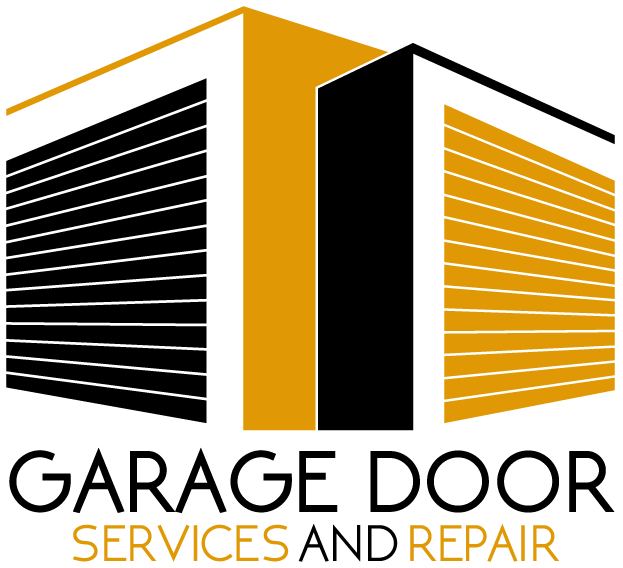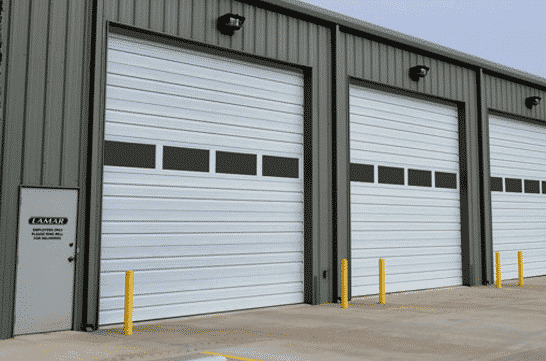In the fast-paced world of business, commercial garage doors are the unsung heroes, offering security and functionality to enterprises across various sectors. However, when these doors need repair, understanding the cost factors involved is crucial for any business owner. This comprehensive guide illuminates the key elements that influence the expenses associated with commercial garage door repairs.
Types of Commercial Garage Doors
Commercial garage doors come in several styles, each with unique features and cost implications. Roll-up doors are popular for their space-saving design, while sectional doors offer versatility in materials and insulation. Fire-rated doors, essential for safety, often come with higher repair costs due to specialized materials and mechanisms.
Impact on Repair Costs
The type of door plays a significant role in repair expenses. For instance, repairing a high-end fire-rated door typically costs more than fixing a standard roll-up model due to the complexity and material costs involved.
Common Repairs and Their Cost Drivers
Understanding the various common repairs and their associated cost drivers is crucial in the world of garage door maintenance. Not only does this knowledge help in budgeting for potential repairs, but it also aids in recognizing the signs of wear and tear early on, potentially saving costs in the long run. Let’s delve into some of the most frequent issues encountered in garage door repairs and what influences their repair costs.
Broken Springs
A prevalent issue in garage door repairs is broken springs. The repair cost varies based on the spring type—torsion or extension. Torsion springs, known for their durability and balance, are generally more expensive to repair or replace than extension springs. The complexity of the repair process for torsion springs, often involving specialized tools and knowledge, adds to the cost.
Door Alignment Issues
Misalignment of garage doors is a common but significant problem. The cost of rectifying this issue depends on the extent of the misalignment and the door’s size and type. Larger, heavier doors, or those with specialized mechanisms like high-speed or sectional doors, often require more intensive labor and expertise to realign, driving up repair costs. Misalignment can also result in additional wear and tear on other components, potentially increasing future repair needs and costs.
Motor or Opener Problems
The motor or opener is a critical component of an automated garage door system. Repairing or replacing a motor, especially for high-powered or industrial-grade doors, can be expensive. The repair cost is influenced by the motor type, its horsepower, and the extent of damage. Additionally, technological advancements in motor design, such as those with integrated smart technology or enhanced security features, can further impact repair costs.
Panel Damage
Damage to individual panels of the garage door can be a costly repair. The expense is influenced by the door material (steel, aluminum, wood, etc.) and the design complexity. Replacing a single panel might be cost-effective, but extensive damage requiring multiple panel replacements can be almost as expensive as installing a new door.
Wear and Tear on Cables and Rollers
Over time, cables and rollers endure significant wear and tear. Replacing frayed cables or worn rollers is essential for safe operation. The cost depends on the cable quality and roller type. Heavy-duty materials and specialized designs, like those used in high-traffic commercial settings, tend to increase the repair cost.
Electronic Components and Sensors
In modern commercial garage doors, electronic components and sensors play a vital role in the door’s safe operation. Repairing or replacing these elements, including safety sensors, remote controls, and keypads, can vary in cost. Technological sophistication and compatibility with existing systems are primary cost drivers.
Weather Sealing and Insulation
Weather sealing and insulation are crucial for energy efficiency and protecting the interior from external elements. Repairing or replacing seals and insulation depends on the material quality and the extent of the damage. In harsh weather conditions, frequent maintenance of these components is necessary, adding to the overall cost.
Track and Rail Issues
The tracks and rails are fundamental to the smooth operation of a garage door. Bends, misalignments, or obstructions in tracks can lead to operational failures. Repair costs include labor for alignment, lubrication, and replacement of damaged parts. Heavy-duty tracks in commercial setups, designed for frequent use, may incur higher repair costs due to their robust construction.
By understanding these common repairs and their associated cost drivers, businesses can better anticipate maintenance expenses and make informed decisions when issues arise with their commercial garage doors.
Emergency Repairs vs. Scheduled Repairs: Cost Differences
Emergency repairs often carry a premium due to their urgent nature. For example, a study by Door Tech, a garage door repair company, shows that emergency services can cost up to 50% more than scheduled repairs. Planning and regular maintenance can help avoid these additional expenses. In fact, regular inspections and maintenance can prevent many emergency situations. Scheduling repairs during regular business hours can significantly reduce costs and ensure a longer lifespan for your garage doors.
Warranty and Insurance Considerations
When dealing with garage door repairs, it’s essential to consider both warranty and insurance aspects, as they can significantly affect the financial and logistical aspects of the repair process. Understanding the nuances of manufacturer warranties and insurance policies can provide clarity on what costs are covered and the necessary steps to ensure coverage. This knowledge not only helps in making informed decisions but also in navigating the often complex landscape of repair logistics and financial responsibilities.
Warranty Impacts on Garage Door Repairs
Many garage doors come with manufacturer warranties that can cover some repair costs. However, it’s crucial to understand the warranty terms, as some repairs might not be covered, depending on the cause of damage. It’s also important to note that improper installation or maintenance can void these warranties, so it’s essential to follow the manufacturer’s guidelines and use authorized service providers for any installation or repair work. Additionally, keeping a record of all maintenance and repairs, along with the dates and details of the work done, can be beneficial in case you need to claim a warranty in the future.
Navigating Insurance for Garage Door Repairs
In some cases, commercial insurance policies may cover garage door repairs, especially if the damage is due to unforeseen events like natural disasters. It’s important to review your policy and understand what is covered.
Additionally, it’s advisable to document the damage with photos and detailed notes, as this can streamline the claims process and provide clear evidence to support your claim. Furthermore, contacting your insurance agent promptly to report the incident and seeking their guidance on approved repair services can help ensure that the repairs are covered under your policy.
Stuck With a Broken Garage Door? Give us a call!
If you’re facing garage door issues, don’t wait for an emergency. Contact Garage Door Services and Repair for a comprehensive repair quote. Explore our resources for more information on maintaining your commercial garage doors effectively.

